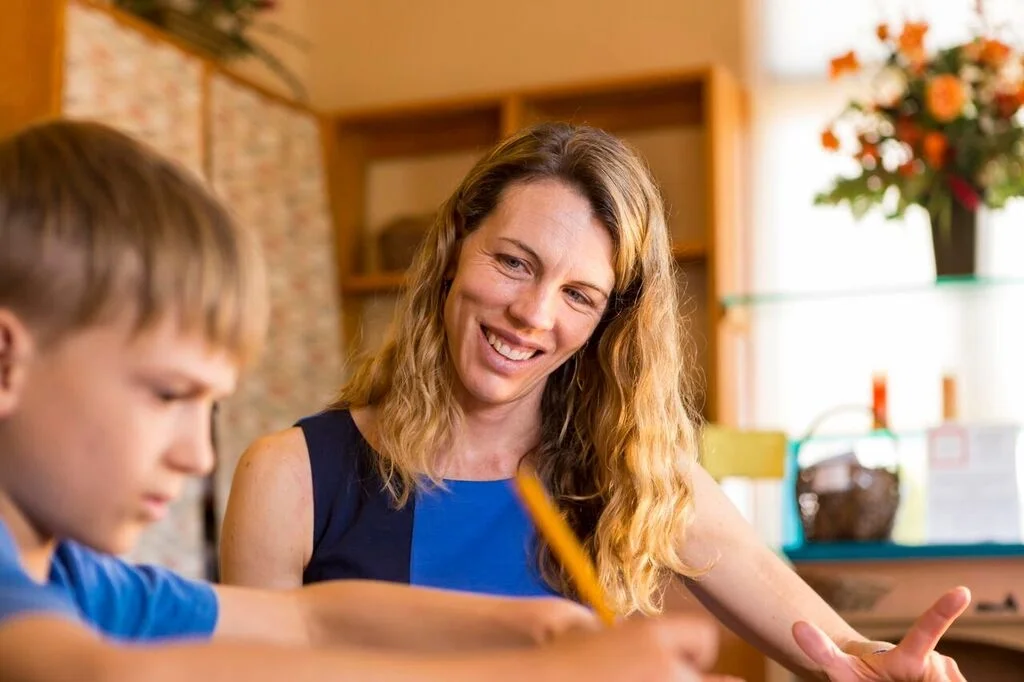As the parent of children with learning differences, I've set out to gain expertise in order to provide viable solutions and to advocate for those with learning differences.
what I do and why
The structured procedures in Sounds In Syllables Multisensory Structured Language Program were developed to change the way a student processes the sounds and symbols of language. When these procedures are adhered to with absolute fidelity, even the most severely dyslexic students have made significant progress.
I apply the procedures of the S.I.S. program with fidelity while seeking a myriad of ways to connect to the learners, the young human beings, with whom I work and to reduce anxious behaviors expressed when working to strengthen one's weakest areas. I work one-on-one with students (and in small groups), 3-5 times per week. Each lesson is tailored to the individual needs of the student using the elements and principals of instruction described on the Program page. I welcome and consider a students' diagnostic educational evaluations and if necessary, in lieu of testing from a certified diagnostician do screening tests initially as well as assessing progress periodically throughout treatment.
The student and I establish a relationship of safety and trust with which we can address the student's weakest skills and strengthen them "going as fast as we can and as slow as we need" (a tenet of the S.I.S. program). We work at the mastery level, meaning that skills are mastered before moving on and this is assessed through automaticity of procedures.
I also use visual tools and mindfulness activities to help students who struggle with executive function skills and attention. These skills (planning and prioritizing, organizing, time management, task initiation, response inhibition, controlling emotions, metacognition, goal-directed persistence, sustained attention, flexibility, and working memory) can be interrupted by the neurological diversity experienced by those with learning differences as well as attention challenges and have not fully formed until well after adolescence in most brains. Visual tools and mindfulness activities applied to the menagerie of responsibilities a person may have at any given time can help that person improve executive function.
As a parent of a child with a learning difference, I intimately understand the journey of families and work with them to find practical, heart centered and scientifically proven ways to support learning.
“Janine is not only helping our son to improve his reading but is truly invested in his well being, always meeting him with the utmost respect and concern for his overall development. We are enjoying seeing his progress and love for reading blossom under her care!
”
“My son has worked with Janine for about seven weeks and the change in his reading ability is amazing. He also enjoys his sessions and is happy and chatty after being with Janine. I was concerned about the intensity of the program, but Janine has supported him so well he is thriving.” ”
“For our son with dyslexia, learning to read has not been an enjoyable experience. Janine has been able to provide the structured learning environment that he needs and she does it in a joyful, patient and compassionate way. As he puts it, ‘Janine makes it fun!’. We are so grateful for her expertise and her gentle way with children. ”
“Janine shows particular passion for helping students develop executive function skills and mindfulness practices that help them strengthen the habits of independent learners. She sees each student as an individual and is able to meet them where they are, then provide the support and instruction necessary to help them move themselves forward.
Janine was particularly successful in persisting with resistant students, and with developing collaborative school-to-home relationships with reluctant families.”
Photographs: Marc Romanelli


